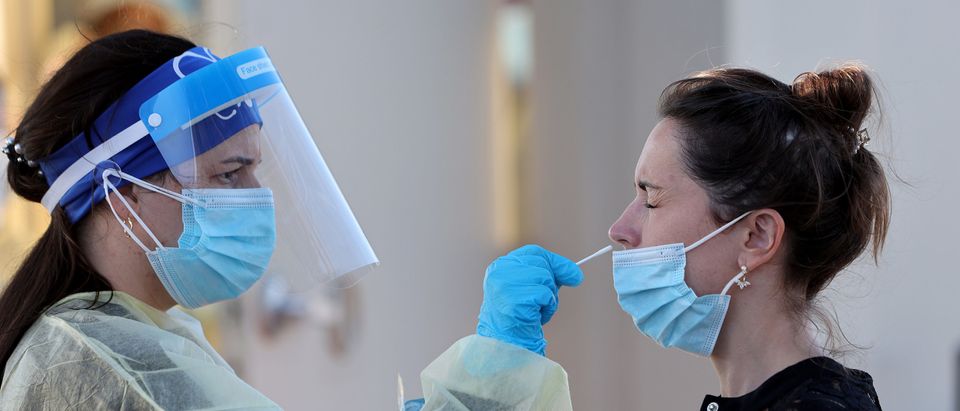A new National Institutes of Health (NIH) study is raising questions about just how real “long COVID” is.
The study found that there was no evidence of long-term COVID-19 infection in patients who were six or more weeks removed from the onset of symptoms, even if those patients reported that they were experiencing “long COVID.” Further, the study found that individuals who reported having long COVID were disproportionately women and individuals with history of anxiety disorders.
Impressive study of Long Covid (here PASC). They only identified significantly higher odds of developing PASC in females and those w/anxiety disorder. They failed to identify objective abnormalities on diagnostic testing to explain the ongoing symptoms. https://t.co/12XahMCPGu pic.twitter.com/JyDCiVoqOw
— Tracy Høeg, MD, PhD (@TracyBethHoeg) May 24, 2022
“Exploratory studies found no evidence of persistent viral infection, autoimmunity, or abnormal immune activation in participants with PASC,” the authors concluded. “Abnormal findings on physical examination and diagnostic testing were uncommon.”
The study enrolled 189 people with lab-documented cases of COVID-19, who were at least six weeks from the onset of symptoms, and 120 control participants who tested negative for COVID-19 antibodies. Fifty-five percent of those who had been infected reported symptoms consistent with PASC (long COVID), while 13% of the control group reported symptoms of PASC. Those who had PASC symptoms reported lower quality of life on standardized tests. (RELATED: New York Times Issues Embarrassing Correction For COVID Data)
Participants were given a physical examination, lab tests and questionnaires, cognitive tests and a cardiopulmonary evaluation. The researchers concluded that there was no identifiable cause of the PASC symptoms in most cases. The authors noted some limitations, including the fact that most participants had only mild cases of COVID-19 and that the rate of PASC symptoms could be increased due to persons with symptoms being more motivated to enroll in the study.
The publication of the findings has ignited further debate about whether long COVID is a legitimate physical ailment, or more often a psychological disorder that persists after recovering from the virus. Clinical research on the subject is mixed. Some alarmists about long COVID have cited it as a reason to further impose policies like mask and vaccine mandates.


